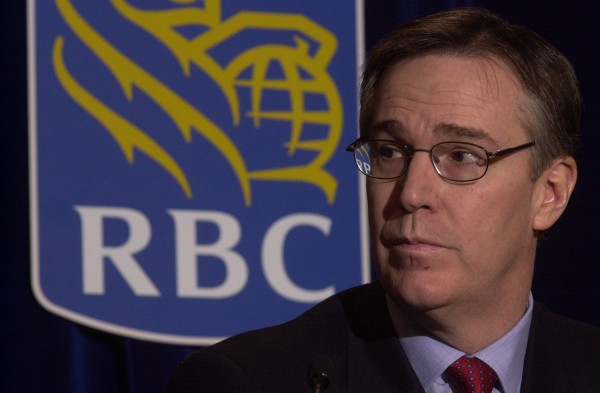RBC CEO Gord Nixon should be putting his bank’s money where his mouth is. Last week, he offered an incoherent defense of RBC’s “balanced approach” to the environment after RAN activists confronted him on the bank’s financial support for expansion of Canada’s tar sands.
Recognizing his stumble, Nelson hit the papers this week to explain. “You can’t over-emphasize the environment at huge cost to the economy” Nixon told the National Post, “and at the same time you cannot do things economically that are a huge cost to the environment.”
Below the surface, though, RBC’s “balanced approach” is anything but. Nixon clarifies that the Bank’s environmental commitment “…doesn’t mean you can’t lend to someone in the oil sands.” In fact, with more than $16.8$14.3 billion (USD) in credit extended to the sector since 2007, nobody lends arranges more lending to oil sands companies than RBC.
Compare this with RBC’s environmental commitments. Nixon points to RBC’s Blue Water Project
“…which, at $50-million, is the biggest philanthropic project for the bank. It is dedicated towards water initiatives in the world from financings that impact wetlands to financing clean-water projects or drilling wells in Nicaragua. We try to do our part.”
Look under the hood, though, and The Blue Water Project looks more like a public relations project. Three years since its launch, the bank has issued just $9.5 million in grants. During the same time period, RBC earned more than $87$84 million (USD) in underwriting fees from tar sands companies. How’s that for balance?
If Nixon were serious about sustainability, he would recognize that the tar sands need to be stopped. That was the recommendation earlier this week from Rajendra Pachauri, head of the UN’s Intergovernmental Panel on Climate Change. French Bank Dexia and the UK’s Co-Op Bank have both established policies that maintain shareholder returns while effectively prohibiting any lending to tar sands companies. RBC should seek a similar balance.
